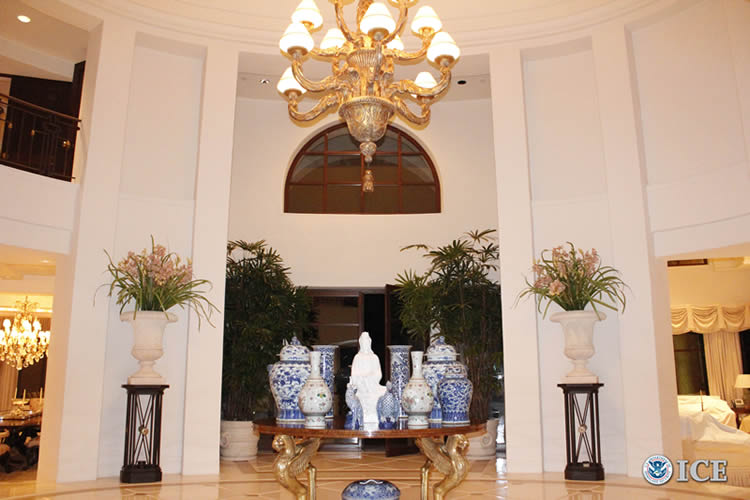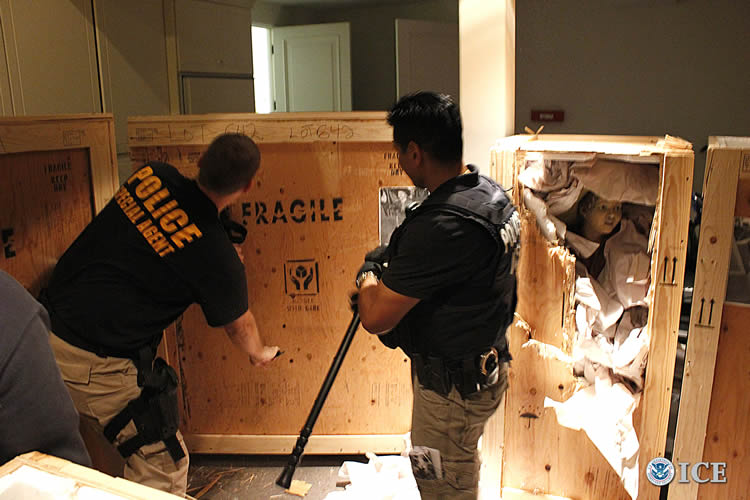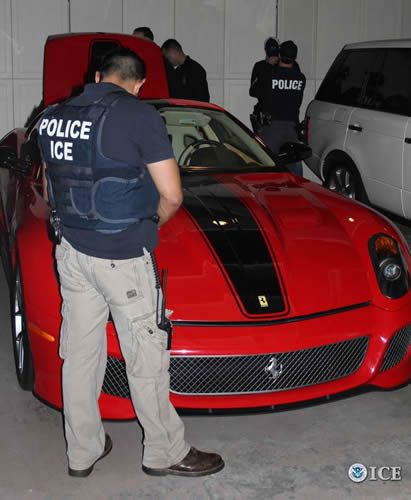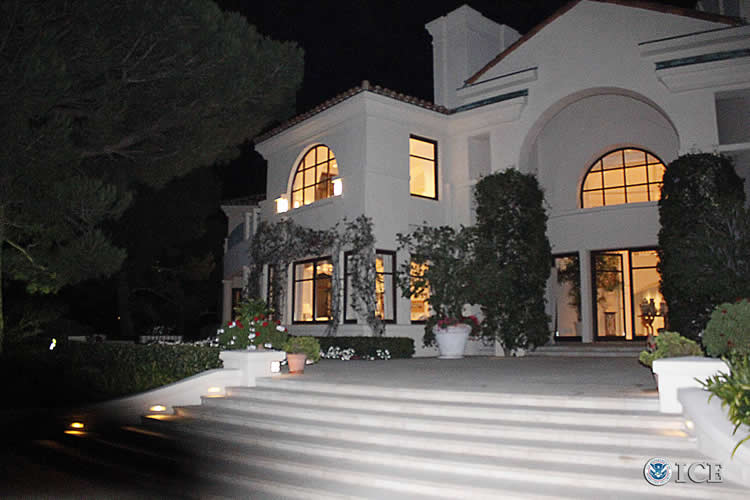Second vice president of Equatorial Guinea agrees to relinquish more than $30 million of assets purchased with corruption proceeds
WASHINGTON — The Department of Justice has reached a settlement of its civil forfeiture cases against assets in the United States owned by the Second Vice President of the Republic of Equatorial Guinea Teodoro Nguema Obiang Mangue that he purchased with the proceeds of corruption.
The investigation leading to the settlement was conducted by U.S. Immigration and Customs Enforcement's (ICE) Homeland Security Investigation's (HSI) Foreign Corruption Investigations Group and the HSI Asset Identification and Removal Group in Miami, with the assistance of HSI Los Angeles and the HSI Attaché offices in Rome, Madrid, London and Paris.
"Through relentless embezzlement and extortion, Vice President Nguema Obiang shamelessly looted his government and shook down businesses in his country to support his lavish lifestyle, while many of his fellow citizens lived in extreme poverty," said Assistant Attorney General Leslie R. Caldwell, of the Justice Department's Criminal Division. "After raking in millions in bribes and kickbacks, Nguema Obiang embarked on a corruption-fueled spending spree in the United States. This settlement forces Nguema Obiang to relinquish assets worth an estimated $30 million, and prevents Nguema Obiang from hiding other stolen money in the United States, fulfilling the goals of our Kleptocracy Asset Recovery Initiative: to deny safe haven to the proceeds of large-scale foreign official corruption and recover those funds for the people harmed by the abuse of office."
According to court documents, Nguema Obiang, the son of Equatorial Guinea's President Teodoro Obiang Nguema Mbasogo, received an official government salary of less than $100,000 but used his position and influence as a government minister to amass more than $300 million worth of assets through corruption and money laundering, in violation of both Equatoguinean and U.S. law. Through intermediaries and corporate entities, Nguema Obiang acquired numerous assets in the United States that he is agreeing to relinquish in a combination of forfeiture and divestment to a charity for the benefit of the people of Equatorial Guinea.
Under the terms of the settlement, Nguema Obiang must sell a $30 million mansion located in Malibu, California, a Ferrari automobile and various items of Michael Jackson memorabilia purchased with the proceeds of corruption. Of those proceeds, $20 million will be given to a charitable organization to be used for the benefit of the people of Equatorial Guinea. Another $10.3 million will be forfeited to the United States and will be used for the benefit of the people of Equatorial Guinea to the extent permitted by law.
Under the agreement, Nguema Obiang must also disclose and remove other assets he owns in the United States. Nguema Obiang must also make a $1 million payment to the United States, representing the value of Michael Jackson memorabilia already removed from the United States for disbursement to the charitable organization. The agreement also provides that if certain of Nguema Obiang's other assets, including a Gulfstream Jet, are ever brought into the United States, they are subject to seizure and forfeiture.
Next week, the parties will request that the court enter appropriate orders to implement and enforce this agreement.
This case was brought under the Kleptocracy Asset Recovery Initiative by a team of dedicated prosecutors in the Criminal Division's Asset Forfeiture and Money Laundering Section, working in partnership with federal law enforcement agencies to forfeit the proceeds of foreign official corruption and, where appropriate, return those proceeds to benefit the people harmed by these acts of corruption and abuse of office. Individuals with information about possible proceeds of foreign corruption located in or laundered through the United States should contact federal law enforcement or send an email to kleptocracy@usdoj.gov.
HSI established the FCIG in 2003 to conduct investigations into the laundering of proceeds emanating from foreign public corruption, bribery and embezzlement. The cases are worked jointly with representatives of the victimized foreign governments. The FCIG's goal is to prevent foreign-derived, ill-gotten gains from entering the U.S. financial infrastructure; to seize assets identified in the U.S.; and to repatriate these funds to the victimized governments. Since the initiative's launch, HSI has effected 220 seizures involving more than $146 million worth of property and assets.
The Department of Justice and ICE appreciate the extensive assistance provided by the Government of France in this investigation and prosecution.





